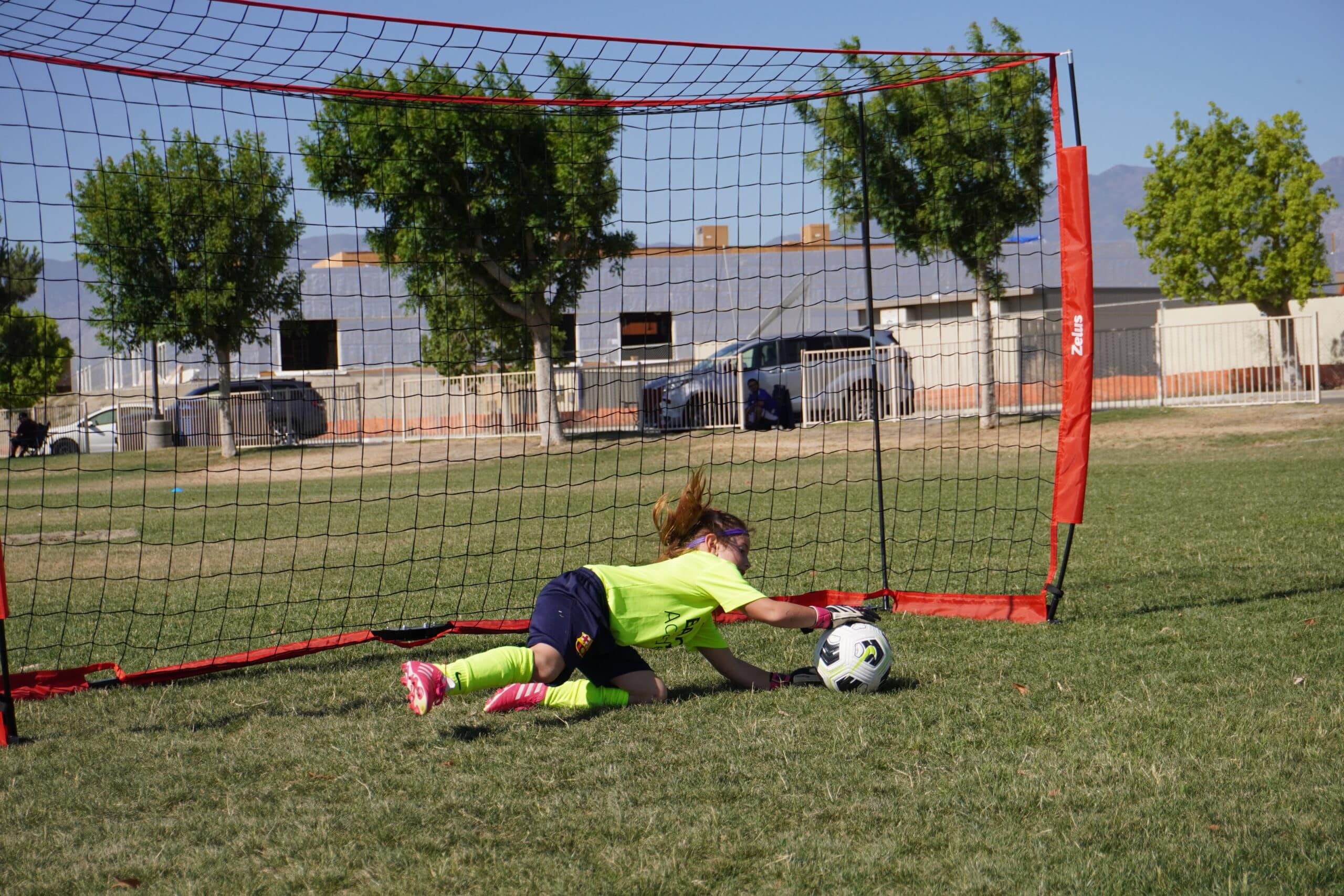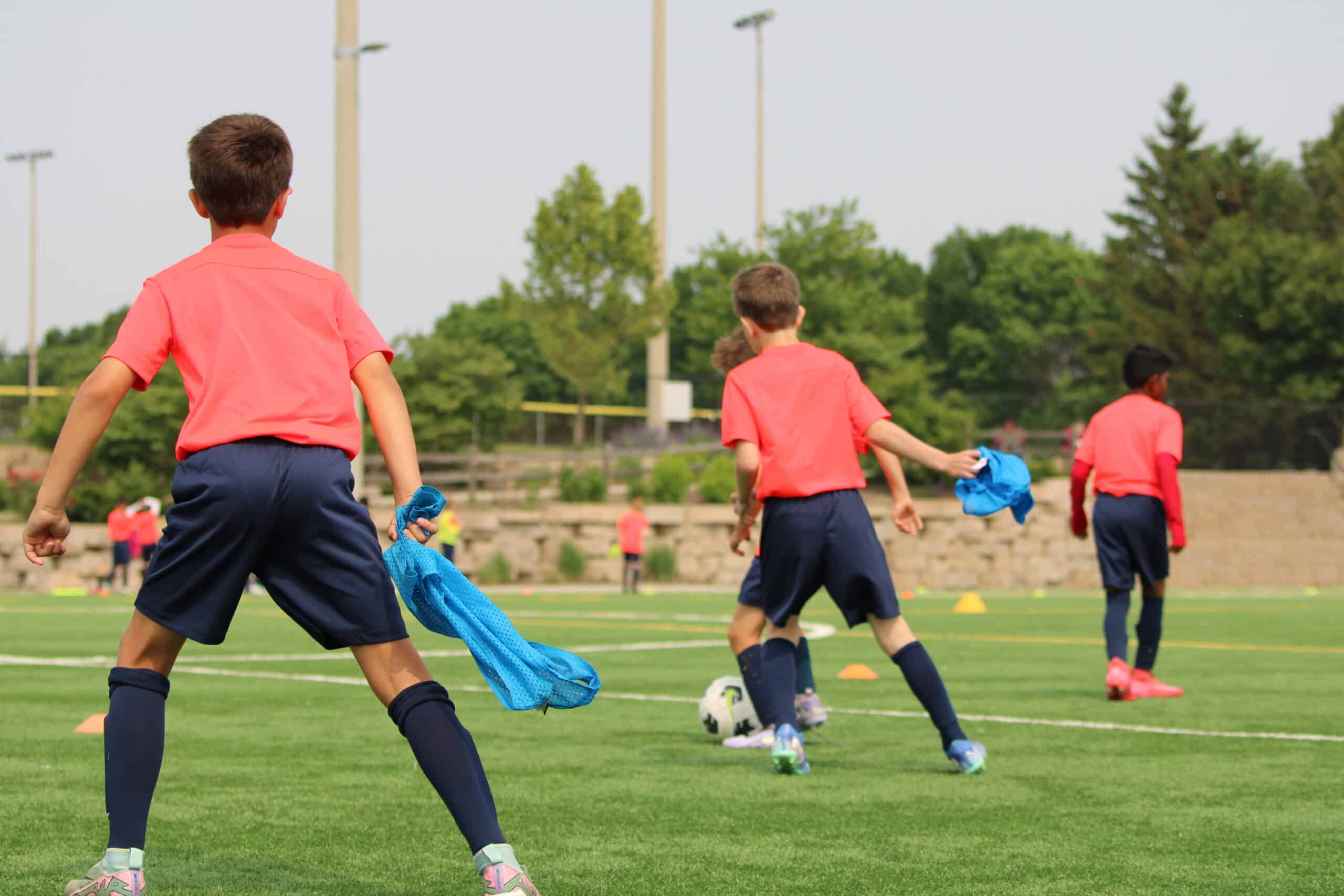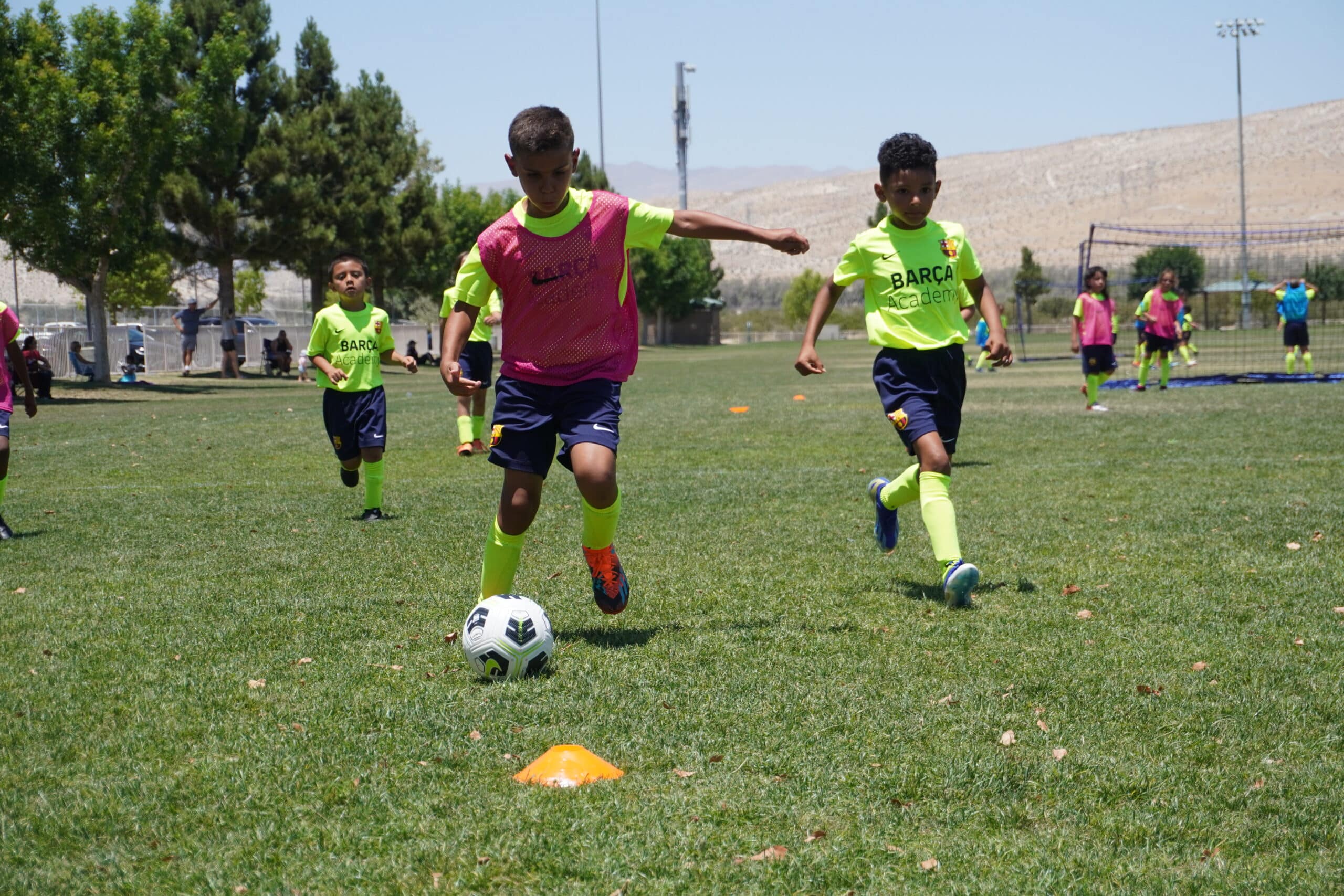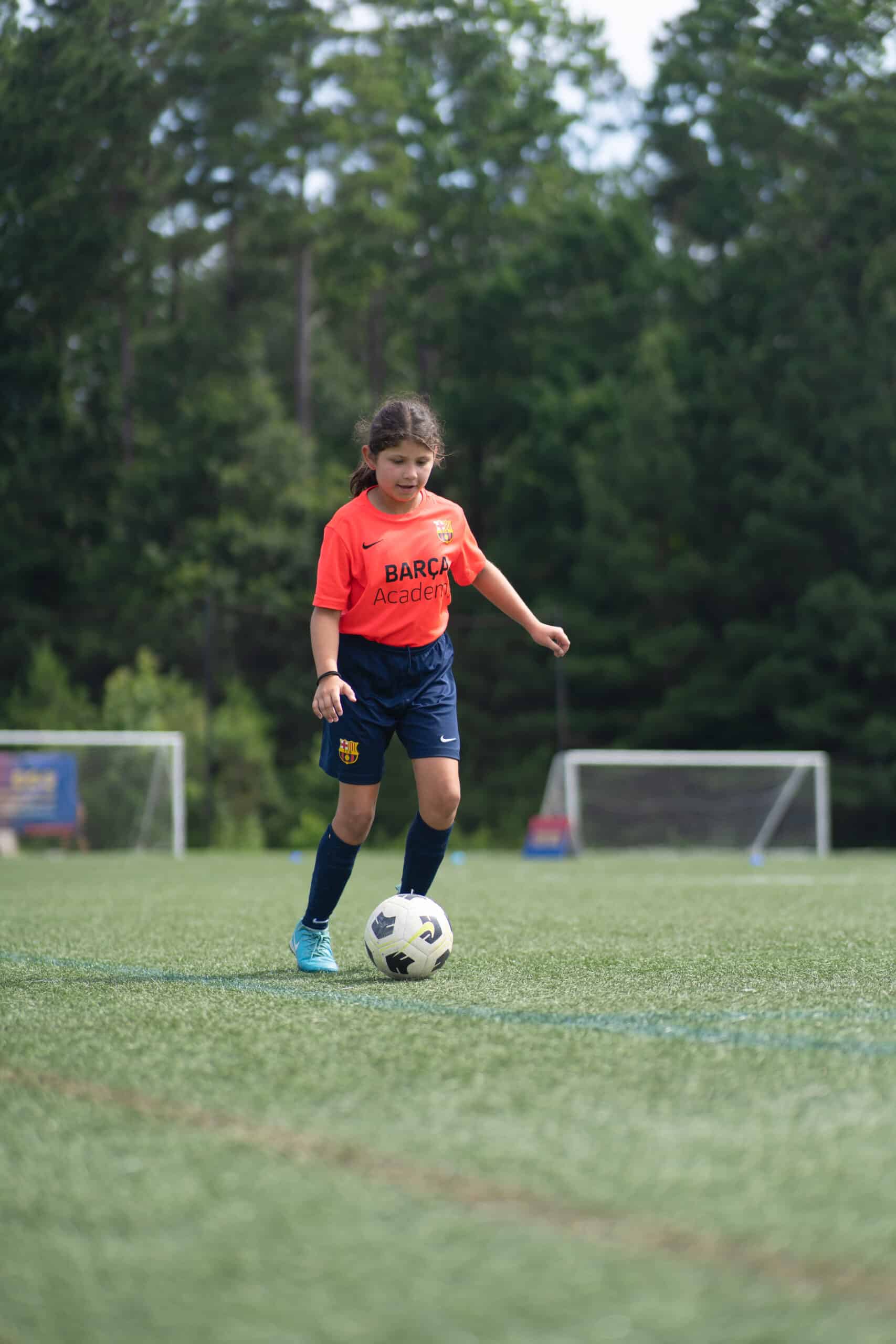As young soccer players embark on their journey towards becoming proficient athletes, it is crucial to recognize the significance of proper nutrition and exercise in shaping their overall development and performance on the field.
The early years of soccer training are formative and lay the foundation for their sporting careers, making it essential to instill healthy habits both on and off the pitch. In this blog post, we will delve into the importance of nutrition and exercise for young soccer players, highlighting the benefits of a well-balanced diet and a structured training regimen.
The Role of Nutrition
Fueling the Body
Soccer is a physically demanding sport that requires ample energy. Young players need to consume a well-balanced diet that includes carbohydrates, proteins, healthy fats, and essential vitamins and minerals. Carbohydrates serve as the primary source of energy and should form a significant portion of their meals. Foods like whole grains, fruits, and vegetables are excellent sources of complex carbohydrates, providing sustained energy during matches and training sessions.
Carbohydrates can be further classified into simple and complex. The simple ones, found in sugary snacks and beverages, offer a quick energy boost but should be consumed in moderation due to their potential for energy spikes and crashes. On the other hand, complex carbohydrates, found in foods like brown rice, quinoa, and sweet potatoes, release energy gradually, providing a steady source of fuel during physical activities.
Optimal Hydration
Hydration is critical for any athlete, and soccer players are no exception. Dehydration can lead to a decline in performance, impaired focus, and an increased risk of injury.
Encourage young players to drink water regularly throughout the day and to maintain hydration during practices and games. Avoid sugary beverages that offer little nutritional value and can lead to energy spikes and crashes.
Proper hydration is essential not only during exercise but also before and after physical activities. Adequate fluid intake before a match or training session ensures that young players start well-hydrated, while rehydration afterward helps replenish lost fluids and facilitates recovery.

Protein for Recovery and Growth
Protein is vital for muscle repair and growth. Including lean sources of protein such as chicken, fish, beans, and legumes in their meals helps young soccer players recover from intense training sessions and build lean muscle mass. Additionally, proteins aid in maintaining strong bones, tendons, and ligaments, reducing the likelihood of injuries.
Protein needs may vary depending on the age, gender, and activity level of young soccer players. As they engage in regular training and physical activity, their protein requirements may be higher than those of their sedentary peers. Encourage them to consume protein-rich foods throughout the day, including after workouts, to support muscle recovery and growth.
Smart Snacking
Snacking is a significant aspect of a young athlete’s nutrition plan. Encourage players to choose healthy snacks like nuts, yogurt, whole-grain crackers, or fruits instead of processed and sugary snacks. Smart snacking helps sustain energy levels and prevents hunger during training and matches.
Healthy snacks should complement the player’s diet and provide essential nutrients. For example, pairing fruits with a source of protein, such as Greek yogurt or peanut butter, can create a well-rounded snack that supports energy levels and muscle recovery.
Nutrients for Performance
In addition to carbohydrates, proteins, and healthy fats, several other nutrients play a crucial role in optimizing the performance of young soccer players:
- Iron: Iron is essential for oxygen transport in the body. Young athletes, especially females, may be at risk of iron deficiency due to increased iron requirements and potential dietary restrictions. Iron-rich foods like lean meats, beans, spinach, and fortified cereals should be included in their diet to support optimal
- Calcium and Vitamin D: Calcium is vital for bone health, and vitamin D aids in calcium absorption. Strong bones are essential for young athletes to withstand the physical demands of soccer. Dairy products, leafy greens, and fortified foods are excellent sources of calcium, while vitamin D can be obtained from sunlight exposure or supplements if necessary.
- Omega-3 Fatty Acids: Omega-3 fatty acids have anti-inflammatory properties and are beneficial for heart health. Foods rich in omega-3s, such as fatty fish (salmon, mackerel, and sardines), chia seeds, and walnuts, can support overall well-being and athletic performance.

The Importance of Exercise
Age-Appropriate Training
Young soccer players should engage in age-appropriate training that focuses on building fundamental skills, coordination, and balance. Structured exercises and drills tailored to their developmental stage help lay the groundwork for more complex skills later on.
Age-appropriate training involves understanding the physical, cognitive, and emotional capacities of young players. Coaches and trainers should create a supportive and nurturing environment that encourages skill development, teamwork, and a love for the sport.
Strength and Conditioning
Strength and conditioning exercises play a vital role in injury prevention and overall performance enhancement. Incorporating age-appropriate strength training, agility drills, and cardiovascular exercises can significantly improve a player’s physical abilities and endurance.
Strength training should be supervised by qualified coaches to ensure proper form and technique. Emphasize functional exercises that mimic soccer movements, such as squats, lunges, and plyometric drills, to build strength and explosive power.
Rest and Recovery
While regular exercise is crucial, ample rest and recovery are equally important for young soccer players. Rest allows the body to repair and rebuild tissues, reducing the risk of overuse injuries and burnout.
Encourage players to get enough sleep each night and incorporate rest days into their training schedules. Sleep is essential for physical and mental recovery, as well as for memory consolidation and learning. Young athletes should aim for 8–10 hours of sleep per night to support optimal performance and overall well-being.
Skill Development
Developing soccer-specific skills through focused training sessions is essential for young players. Dribbling, passing, shooting, and tactical awareness are critical aspects that should be honed regularly.
Skill development can be achieved through drills, small-sided games, and scrimmages that simulate real-game situations. Repetition and practice are key to mastering soccer skills, so encourage young players to embrace challenges and persist in their efforts to improve.
Injury Prevention
Prioritizing injury prevention is crucial for the long-term well-being of young soccer players. Injuries can not only hinder their progress but also affect their enthusiasm for the sport.
Warm-up routines before training and matches help prepare the body for physical exertion and reduce the risk of muscle strains and injuries. Cooling down and stretching after activities help maintain flexibility and prevent muscle tightness.

Conclusion
In conclusion, the journey of young soccer players is shaped not only by their dedication and talent but also by the foundation of proper nutrition and exercise.
A well-balanced diet ensures that players have the energy to perform at their best, while a structured training regimen helps them develop their physical abilities and soccer skills. As they progress through their training, instilling values such as respect, effort, ambition, teamwork, and humility further enrich their development as both athletes and individuals.
With the right guidance and support, young soccer players can embark on a path that leads to a bright and successful future in the world of soccer. By nurturing their passion for the sport and fostering a holistic approach to their well-being, we empower them to excel in all aspects of their soccer journey.












